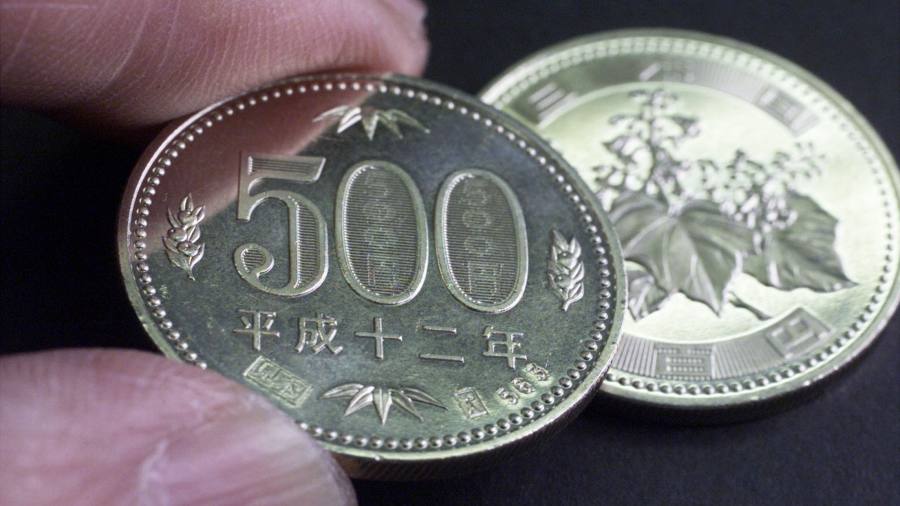Receive free Japanese society updates
We’ll send you a myFT Daily Digest email rounding up the latest Japanese society news every morning.
The number of coins circulating in Japan has fallen by an unprecedented amount, suggesting the nation’s households are coming to the end of their long love affair with the piggy bank.
The national stock of coins rose steadily since 1970, but has fallen sharply on a year-on-year basis for 18 straight months, according to Bank of Japan data.
The turnround has been sparked by a combination of the Covid pandemic, banking fees, inflation and the rise of cashless payment technology.
The popularity of cashless payments — which some have linked with the idea that coins were perceived as “dirty” and a vector for Covid — accelerated sharply in 2022. Cashless transactions accounted for 36 per cent of all consumer payments, compared with 15 per cent a decade earlier.
Analysts said the public’s shift away from coins may also signal a wider change in Japanese attitudes towards saving.
The sharpest drop has been in circulation of the largest denomination ¥500 coin. This is the most common coin given to children to keep in their piggy banks, a tradition that seeks to establish solid patterns of saving and deferred gratification at an early age.
Parents traditionally set aside any ¥500 coins in their change and add it to their children’s piggy banks, whose contents are transferred to bank accounts when full.
But from the start of last year, Japanese banks began imposing stiff charges of up to ¥1,100 on anyone depositing large numbers of coins.
Tsuyoshi Ueno, chief economist at the NLI Research Institute in Tokyo, said strong resistance to paying fees had probably caused many households to stop using piggy banks and generally to avoid accumulating change by using cashless technology for smaller payments.
Piggy banks were the driving force behind demand for — and minting of — ¥500 coins, so it was reasonable to assume that the savings reversal was causing that demand to plummet, Ueno wrote in a research paper on the phenomenon.
The apparent change in behaviour comes as Japan’s highest inflation for decades is challenging people’s attitudes towards spending and saving.
Years of stagnant growth encouraged consumers to put the majority of their assets in low-yielding bank deposits. But now core inflation has exceeded the BoJ’s 2 per cent target for 14 straight months while wage data this week showed continuing upward pressure.
Japan’s political and business worlds are increasingly focused on the possibility that the country is undergoing a fundamental shift. An entire generation that has grown up through an era of deflation is being forced to adjust to rising prices, a more demanding labour market and, conceivably, a move away from Japan’s 24-year experiment with ultra-low interest rates.
Economists at JPMorgan in Tokyo said that while demand for bank deposits had remained broadly stable as a share of household assets, and the decline in the quantity of banknotes in circulation had not been as sharp as for coins, the BoJ data could herald change.
“The implication here is that a decline in coin usage could hint at a broader inflection in Japan’s cash-is-king philosophy,” said JPMorgan’s Benjamin Shatil, who also noted the sudden coin decline in a note to clients last month.
Read the full article here





